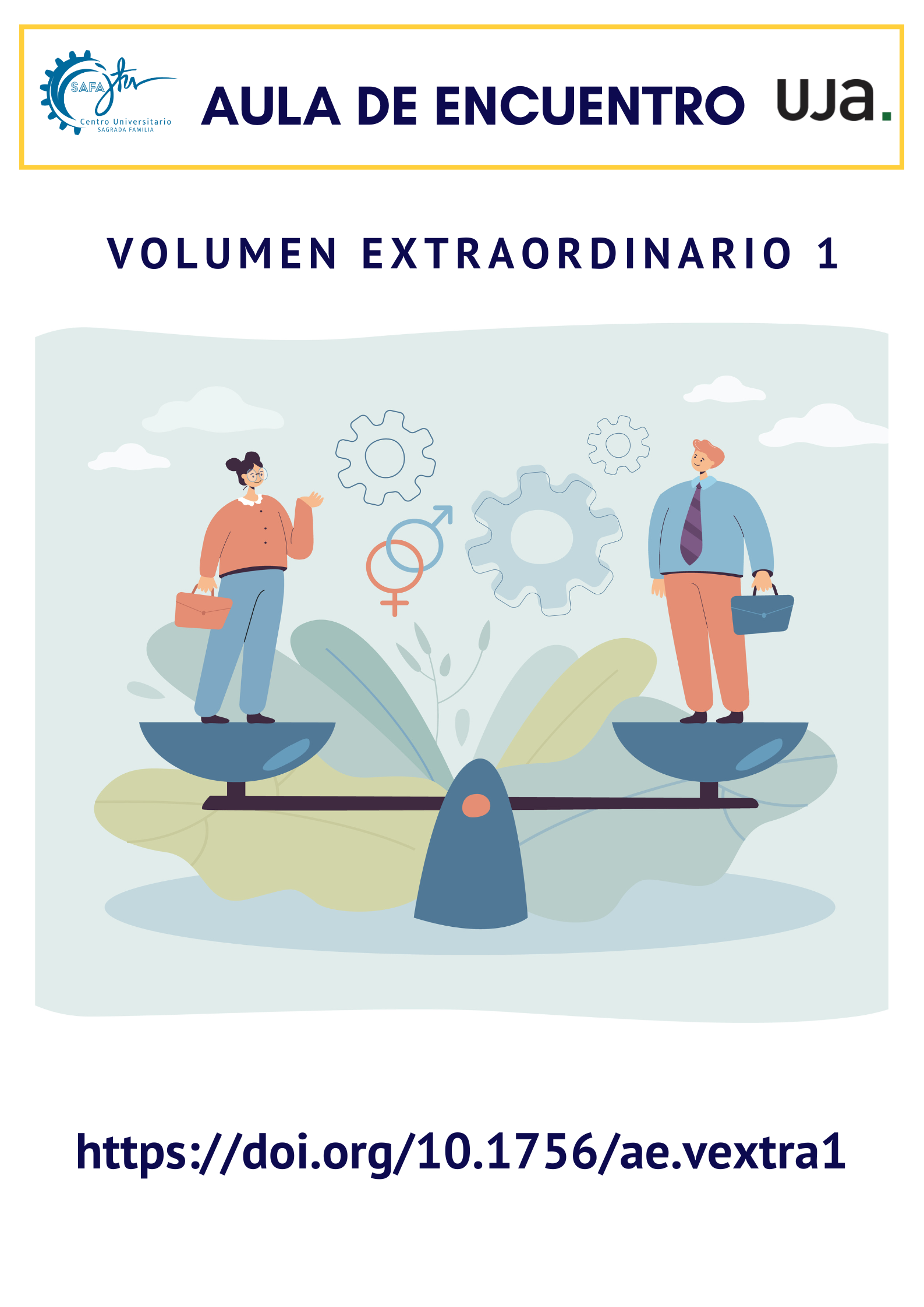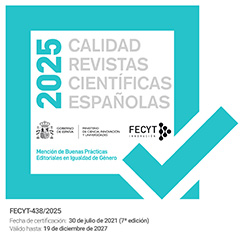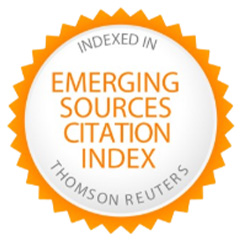Introducción al volumen extraordinario sobre "Democracia cultural y justicia social en el aula"
DOI:
https://doi.org/10.17561/ae.vextra1.7333Palabras clave:
critical pedagogy, cultural democracy, social justice, language, voiceResumen
Este trabajo constituye una introducción al volumen extraordinario sobre “Democracia cultural y justicia social en el aula”. En consonancia con los artículos del volumen, el trabajo plantea la noción de democracia cultural como un medio poderoso para defender los derechos (culturales y lingüísticos) de las minorías subalternas y para obtener una verdadera justicia social en el aula (y en la sociedad en general). Además, el trabajo sintetiza los contenidos de los nueve trabajos que conforman el volumen especial.
Descargas
Referencias
Andersson, L.-G. & Trudgill, P. (1990). Bad Language. Oxford: Basil Blackwell.
Apple, M. W. (2010). Global Crises, Social Justice and Education. New York, NY: Routledge. https://doi.org/10.4324/9780203861448
Armstrong, N. & Mackenzie, I. (2013). Standardization, Ideology and Linguistics. New York, NY: Palgrave MacMillan. https://doi.org/10.1057/9781137284396
Avineri, N., Graham, L. R., Johnson, E. J., Conley Riner, R. & Rosa, J. (Eds.) (2019). Language and Social Justice in Practice. New York & Abingdon: Routledge. https://doi.org/10.4324/9781315115702
Ayers, W., Quinn, T. M. & Stovall, D. (eds.) (2009). Handbook of Social Justice in Education. New York, NY & Abingdon: Routledge. https://doi.org/10.4324/9780203887745
Babaci-Wilhite, Z. (2015). Language, Development Aid and Human Rights in Education. Curriculum Policies in Africa and Asia. London & New York, NY: Palgrave MacMillan. https://doi.org/10.1007/978-94-6209-947-0
Barber, B. R. (1984). Strong Democracy. Participatory Politics for a New Age. Berkeley, CA: University of California Press.
Baron, D. (2000). Ebonics and the politics of English. World Englishes, 19(1), 5-19. https://doi.org/10.1111/1467-971X.00152
Battistella, E. (2005). Bad Language. Are Some Words Better Than Others? New York, NY: Oxford University Press. https://doi.org/10.1093/acprof:oso/9780195172485.001.0001
Bauer, L. & Trudgill, P. (eds.) (1998). Language Myths. London: Penguin.
Baugh, J. (1988). Language and race: Some implications for linguistic science. En F. J. Newmeyer (Ed.), Linguistics: The Cambridge Survey, vol. IV: Language: The Socio-Cultural Context (pp. 64-74). Cambridge: Cambridge University Press. https://doi.org/10.1017/CBO9780511620577.005
Baugh, J. (1995). The law, linguistics and education: Educational reform for African American language minority students. Linguistics and Education, 7(2), 87-105. https://doi.org/10.1016/0898-5898(95)90002-0
Baugh, J. (1999). Out of the Mouths of Slaves: African American Language and Educational Malpractice. Austin, TX: University of Texas Press.
Baugh, J. (2000). Beyond Ebonics. Linguistic Pride and Racial Prejudice. New York, NY: Oxford University Press.
Baugh, J. (2001). Applying linguistic knowledge of African American English to help students learn and teachers teach. En S. L. Lanehart (Ed.), Sociocultural and Historical Contexts of African American English (pp. 219-330). Amsterdam: John Benjamins. https://doi.org/10.1075/veaw.g27.20bau
Baugh, J. (2005). Educational implications of Ebonics. En D. J. Ramirez, T. G. Wiley, G. de Klerk, E. Lee & W. E. Wright (Eds.), Ebonics. The Urban Educational Debate, 2nd ed (pp. 41-48). Clevedon: Multilingual Matters. https://doi.org/10.21832/9781853597985-005
Baugh, J. (2015). Beyond dialectalism: Language planning and policies for African American students. En S. L. Lanehart (Ed.), The Oxford Handbook of African American Language (pp. 659-673). New York, NY: Oxford University Press.
Baugh, J. (2018). Linguistics in Pursuit of Justice. Cambridge: Cambridge University Press. https://doi.org/10.1017/9781316597750
Bereiter, C. & Engelmann, S. (1966). Teaching Disadvantaged Children in the Pre-School. Englewood Cliffs, NJ: Prentice Hall.
Bucholtz, M. & Hall, K. (2004). Language and identity. En A. Duranti (Ed.), A Companion to Linguistic Anthropology (pp. 369-394). Oxford & Malden, MA: Blackwell. https://doi.org/10.1002/9780470996522.ch16
Charity-Hudley, A. H. & Mallinson, C. (2011). Understanding English Language Variation in U.S. Schools. New York, NY: Teachers College Press.
Clark, R. & Ivanić, R. (1997). The Politics of Writing. London & New York, NY: Routledge.
Corson, D. (1998). Changing Education for Diversity. Buckingham & Philadelphia, PA: Open University Press.
Corson, D. (2001). Language Diversity and Education. Mahwah, NJ: Lawrence Erlbaum.
Darder, A. (1991). Culture and Power in the Classroom. A Critical Foundation for Bicultural Education. Westport, CT: Bergin & Garvey.
Darder, A. (2004). The politics of language: An introduction. Latino Studies, 2(2), 231-236. https://doi.org/10.1057/palgrave.lst.8600084
Darder, A. (2011). A Dissident Voice: Essays on Culture, Pedagogy, and Power. New York, NY: Peter Lang.
Darder, A. (2012). Culture and Power in the Classroom. Educational Foundations for the Schooling of Bicultural Students, 2nd ed. Boulder, CO: Paradigm.
Darder, A. (2015). Freire and Education. New York, NY: Routledge. https://doi.org/10.4324/9780203109021
Darder, A. (2017). Reinventing Paulo Freire: A Pedagogy of Love, 2nd ed. New York, NY: Routledge. https://doi.org/10.4324/9781315560779
Darder, A. (2018). The Student Guide to Freire’s ‘Pedagogy of the Oppressed’. London: Bloomsbury.
Darder, A. & Torres, R. D. (2004). After Race: Racism After Multiculturalism. New York, NY: New York University Press.
De la Blanca, S. (Ed.) (2012). Educación superior, ¿neoliberalismo y mercantilismo de mercado o crítica y responsabilidad social? Aula de Encuentro, Número especial 1.
Djité, P. G. (2008). The Sociolinguistics of Development in Africa. Clevedon: Multilingual Matters. https://doi.org/10.21832/9781847690470
Edwards, J. (2009). Language and Identity. An Introduction. Cambridge: Cambridge University Press. https://doi.org/10.1017/CBO9780511809842
Fairclough, N. (1989). Language and Power. Essex & New York, NY: Longman.
Farrell, T. J. (1983). IQ and standard English. College Composition and Communication, 34(4), 470-484. https://doi.org/10.2307/357902
Fasold, R. & Connor-Linton, J. (2006). Introduction. En R. Fasold & J. Connor-Linton (Eds.), An Introduction to Language and Linguistics (pp. 1-11). Cambridge: Cambridge University Press.
Freinet, C. (1968-1971). La méthode naturelle. Neuchâtel: Delachaux & Niestlé, 3 vols.
Freire, P. (1967). Educação como prática da liberdade. Rio de Janeiro: Paz e Terra.
Freire, P. (1969). ¿Extensión o comunicación? La concientización en el medio rural. Santiago de Chile: ICIRA (Instituto de Capacitación e Investigación en Reforma Agraria).
Freire, P. (1970). Pedagogia do oprimido. São Paulo: Paz e Terra.
Freire, P. (1972). Sobre la acción cultural. Santiago de Chile: ICIRA (Instituto de Capacitación e Investigación en Reforma Agraria).
Freire, P. (1985). The Politics of Education. Culture, Power and Liberation. South Hadley, MA: Bergin & Garvey. https://doi.org/10.1007/978-1-349-17771-4
Freire, P. (1993). Política e educação. São Paulo: Cortez Editora. Cito por Política y educación, 2ª ed. México: Siglo XXI, 1997.
Freire, P. & Macedo, D. (1987). Literacy. Reading the Word and the World. South Hadley, MA: Bergin & Garvey. Cito por Alfabetización. Lectura de la palabra y lectura de la realidad. Barcelona: Paidós, 1989.
Gandin, L. A. & Apple, M. W. (2002). Thin versus thick democracy in education: Porto Alegre and the creation of alternatives to neo-liberalism”. International Studies in Sociology of Education, 12(2), 99-115. https://doi.org/10.1080/09620210200200085
García Abelleira, N. & Longa, V. M. (2015). Enseñando a los niños a discriminar. La plasmación de la ideología del estándar en la escuela. En V. M. Longa (Ed.), Representaciones sobre la variación lingüística: lenguaje, prescripción y discriminación. Número especial de Representaciones. Revista de Estudios sobre Representación en Arte, Ciencia y Filosofía, 11(2), 148-186.
Garrett, P. B. (2019). Why do people fight over language? En C. Myrick & W. Wolfram (Eds.), The 5 Minute Linguist. Bite-Sized Essays on Language and Languages, 3rd ed (pp. 218-223). Sheffield: Equinox.
Giroux, H. (1987). Introduction. Literacy and the pedagogy of political empowerment. En P. Freire & D. Macedo, Literacy. Reading the Word and the World (pp. 1-18). South Hadley, MA: Bergin & Garvey. Cito por Alfabetización. Lectura de la palabra y lectura de la realidad (pp. 25-50). Barcelona: Paidós.
Giroux, H. (2005). Schooling and the Struggle for Public Life. Democracy’s Promise and Education’s Challenge, updated ed. Boulder, CO & London: Paradigm Publishers.
Giroux, H. A. (2012). Higher education, critical pedagogy, and the challenge of neoliberalism: Rethinking the role of academics as public intellectuals. Aula de Encuentro, Volumen especial 1, 15-27.
Gordon, E., Miller, F. & Rollock, D. (1990). Coping with communicentric bias in knowledge production in the Social Sciences. Educational Researcher, 19(3), 14-19. https://doi.org/10.3102/0013189X019003014
Helu-Thaman, K. (1994). Cultural democracy for whom? A view from the Pacific Islands. Directions: Journal of Educational Studies, 30(16/1), 3-19.
Hernandez, K. (2018). Service Learning as a Political Act in Education. Bicultural Foundations for a Decolonizing Pedagogy. New York, NY: Routledge. ttps://doi.org/10.4324/9781315184340
Jensen, A. R. (1969). How much can we boost IQ and scholastic achievement? Harvard Educational Review, 39(1), 1-123. https://doi.org/10.17763/haer.39.1.l3u15956627424k7
Joseph, J. E. (2006). Language and Politics. Edinburgh: Edinburgh University Press.
Labov, W. (1969). The logic of nonstandard English. En J. E. Alatis (Ed.), 20th Annual Round Table. Linguistics and the Teaching of Standard English to speakers of Other Languages or Dialects (pp. 1-44). Georgetown Monographs on Language and Linguistics, 22, 1-44.
Lippi-Green, R. (2012). English with an Accent. Language, Ideology and Discrimination in the United States, 2nd ed. Abingdon & New York, NY: Routledge. https://doi.org/10.4324/9780203348802
Llamas, C. & Watt, D. (Eds.) (2010). Language and Identities. Edinburgh: Edinburgh University Press. https://doi.org/10.1515/9780748635788
Longa, V. M. (2008). Sobre prejuicios lingüísticos y la necesidad de desterrarlos del ámbito educativo: dialecto estándar y dialectos no estándares. Aula de Encuentro, 11, 167-186.
Longa, V. M. (2015). Introducción al número especial / Introduction to the special issue. En V. M. Longa (Ed.), Representaciones sobre la variación lingüística: lenguaje, prescripción y discriminación. Número especial de Representaciones. Revista de Estudios sobre Representación en Arte, Ciencia y Filosofía, 11(2), 3-26.
Longa, V. M. (Ed.) (2015). Representaciones sobre la variación lingüística: lenguaje, prescripción y discriminación. Número especial de Representaciones. Revista de Estudios sobre Representación en Arte, Ciencia y Filosofía, 11(2).
Manojan, K. P. (2019). Cultural democracy and schooling in India: A subaltern perspective. Journal of Pedagogy, 10(2), 101-121. https://doi.org/10.2478/jped-2019-0009
Mayo, P. (2010). Gramsci and Educational Thought. Chichester: Wiley-Blackwell. https://doi.org/10.1002/9781444324006
Mayo, P. (2015). Hegemony and Education Under Neoliberalism: Insights from Gramsci. New York, NY & Abingdon: Routledge. https://doi.org/10.4324/9780203069219
Mendoza-Denton, N. (2003). Language and identity. En J. Chambers, P. Trudgill & N. Schilling-Estes (Eds.), The Handbook of Language Variation and Change (pp. 475-499). Malden, MA: Blackwell. https://doi.org/10.1111/b.9781405116923.2003.00027.x
Milroy, J. (2001). Language ideologies and the consequences of standardization. Journal of Sociolinguistics, 5(4), 530-555. https://doi.org/10.1111/1467-9481.00163
Milroy, J. & Milroy, L. (1985). Authority in Language. Investigating Language Prescription and Standardisation. London: Routledge & Kegan Paul.
Moreno Cabrera, J. C. (2000). La dignidad e igualdad de las lenguas. Crítica de la discriminación lingüística. Madrid: Alianza.
Mosquera Martínez, C. & Longa, V. M. (2015). Cuando la diversidad molesta: el tratamiento de la diversidad intralingüística en libros de texto de Lengua Castellana. Aula de Encuentro, 17(1), 5-44.
Orosco, J.-A. (2016). Toppling the Melting Pot. Immigration and Multiculturalism in American Pragmatism. Bloomington, IN: Indiana University Press. https://doi.org/10.2307/j.ctt2005wtt
Paraskeva, J. M. (2016). Curriculum Epistemicide. Towards an Itinerant Curriculum Theory [Preface by Antonia Darder]. New York, NY: Routledge. https://doi.org/10.4324/9781315734781
Paraskeva, J. M. (2021a). Curriculum and the Generation of Utopia [Preface by Antonia Darder]. New York, NY: Routledge. https://doi.org/10.4324/9781003025771-5
Paraskeva, J. M. (2021b). Conflicts in Curriculum Theory. Challenging Hegemonic Epistemologies, 2nd edition. New York, NY: Palgrave Macmillan. https://doi.org/10.1007/978-3-030-77420-2
Pickett, L. (2013). Antonia Darder: A passionate, courageous, and committed critical pedagogue. En J. D. Kirylo (Ed.), A Critical Pedagogy of Resistance. 34 Pedagogues We Need to Know (pp. 25-28). Rotterdam & Boston, MA: Sense Publishers. https://doi.org/10.1007/978-94-6209-374-4_7
Preece, S. (Ed.) (2016). The Routledge Handbook of Language and Identity. London & New York, NY: Routledge. https://doi.org/10.4324/9781315669816
Ramírez, M. & Castañeda, A. (1974). Cultural Democracy: Bicognitive Development and Education. New York, NY: Academic Press.
Rassool, N. (con M. Canvin, K. Heugh & S. Mansoor) (2007). Global Issues in Language, Education and Development. Perspectives from Postcolonial Countries. Clevedon: Multilingual Matters. https://doi.org/10.21832/9781853599538
Romaine, S. (1994). Language in Society. Oxford: Oxford University Press. Cito por El lenguaje en la sociedad. Una introducción a la sociolingüística. Barcelona: Ariel, 1996.
Schilling-Estes, N. (2006). Dialect variation. En R. Fasold & J. Connor-Linton (Eds.), An Introduction to Language and Linguistics (pp. 311-341). Cambridge: Cambridge University Press.
Simpson, P., Mayr, A. & Statham, S. (2019). Language and Power, 2nd ed. New York, NY: Routledge. https://doi.org/10.4324/9780429468896-1
Skutnabb-Kangas, T., Phillipson, R., Mohanty, A. K. & Panda, M. (Eds.) (2009). Social Justice Through Multilingual Education. Bristol: Multilingual Matters. https://doi.org/10.21832/9781847691910
Smith, D. M. (2012). The American melting pot: A national myth in public and popular discourse. National Identities, 14(4), 387-402. https://doi.org/10.1080/14608944.2012.732054
Tabouret-Keller, A. (1997). Language and identity. En F. Coulmas (Ed.), The Handbook of Sociolinguistics (pp. 315-326). Oxford: Blackwell. https://doi.org/10.1002/9781405166256.ch19
Tusón, J. (1996). Los prejuicios lingüísticos. Barcelona: Octaedro.
Van Pinxteren, B. (2021). Language, Education and Identity in Africa. Amsterdam. LOT.
Williams, R. (1997). The Ebonics controversy. Journal of Black Psychology, 23(3), 208-214. https://doi.org/10.1177/00957984970233002
Wolfram, W. (1998). Myth 13. Black children are verbally deprived. En L. Bauer & P. Trudgill (Eds.), Language Myths (pp. 103-112). London: Penguin.
Wolfram, W. & Schilling-Estes, N. (1998). American English. Dialects and Variation. Malden, MA: Blackwell.
Wolfram, W., Temple-Adger, C. & Christian, D. (1999). Dialects in Schools and Communities. Mahwah, NJ: Lawrence Erlbaum. https://doi.org/10.4324/9781410601148
Young, I. M. (1990). Justice and the Politics of Difference. Princeton, NJ: Princeton University Press.
Zsiga, E. C., Tlale Boyer, O. & Kramer, R. (Eds.) (2014). Languages in Africa. Multilingualism, Language Policy, and Education. Washington, DC: Georgetown University Press.
Zyngier, D. (2012). Rethinking the thinking on democracy in education: What are educators thinking (and doing) about democracy? Education, 2, 1-21. https://doi.org/10.3390/educ2010001
Descargas
Publicado
Número
Sección
Licencia
Derechos de autor 2022 Víctor M. Longa

Esta obra está bajo una licencia internacional Creative Commons Atribución 4.0.
Los autores que publican en esta revista están de acuerdo con los siguientes términos:
- Los autores conservan los derechos de autor y garantizan a la revista el derecho de ser la primera publicación del trabajo al igual que licenciado bajo una Creative Commons Attribution License que permite a otros compartir el trabajo con un reconocimiento de la autoría del trabajo y la publicación inicial en esta revista.
- Los autores pueden establecer por separado acuerdos adicionales para la distribución no exclusiva de la versión de la obra publicada en la revista (por ejemplo, situarlo en un repositorio institucional o publicarlo en un libro), con un reconocimiento de su publicación inicial en esta revista.
- Se permite y se anima a los autores a difundir sus trabajos electrónicamente (por ejemplo, en repositorios institucionales o en su propio sitio web) antes y durante el proceso de envío, ya que puede dar lugar a intercambios productivos, así como a una citación más temprana y mayor de los trabajos publicados (Véase The Effect of Open Access) (en inglés).
![]()
Este obra está bajo una licencia de Creative Commons Reconocimiento 4.0 Internacional.















